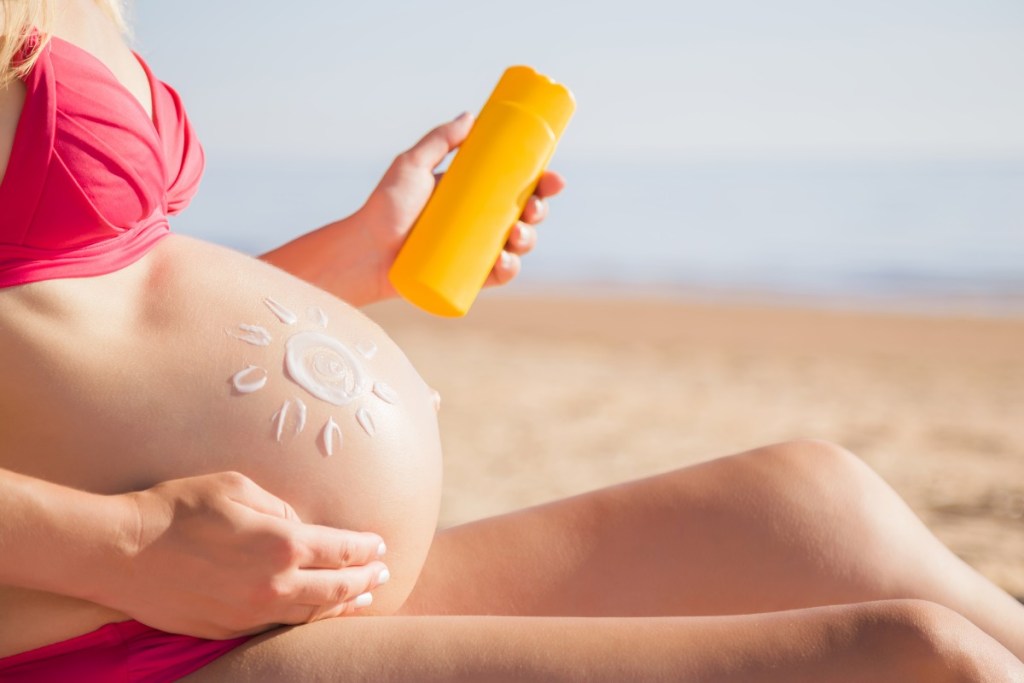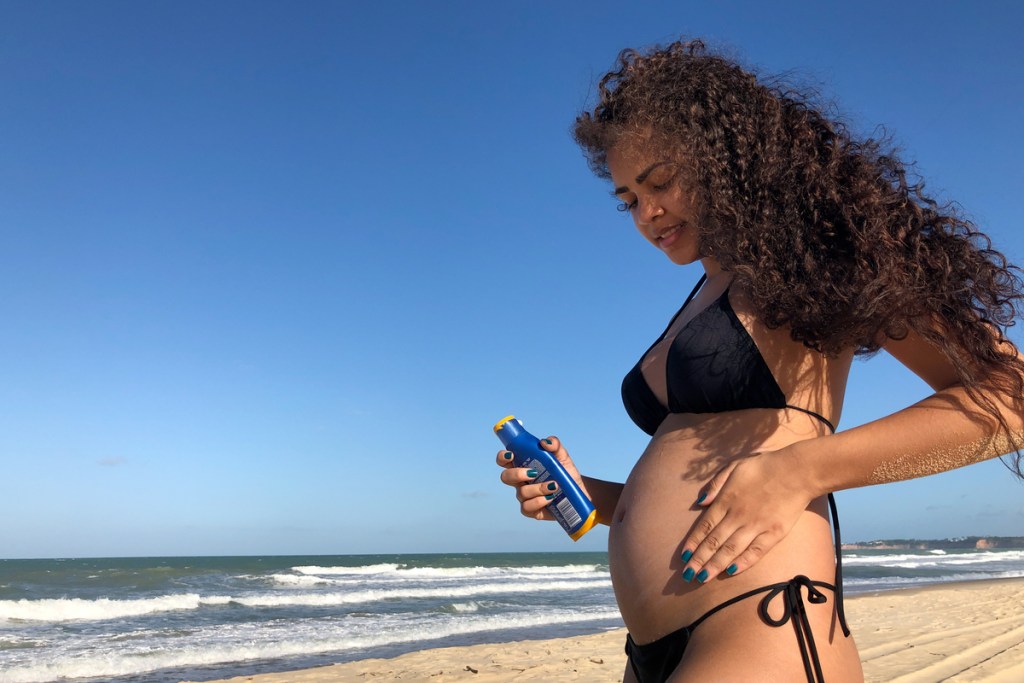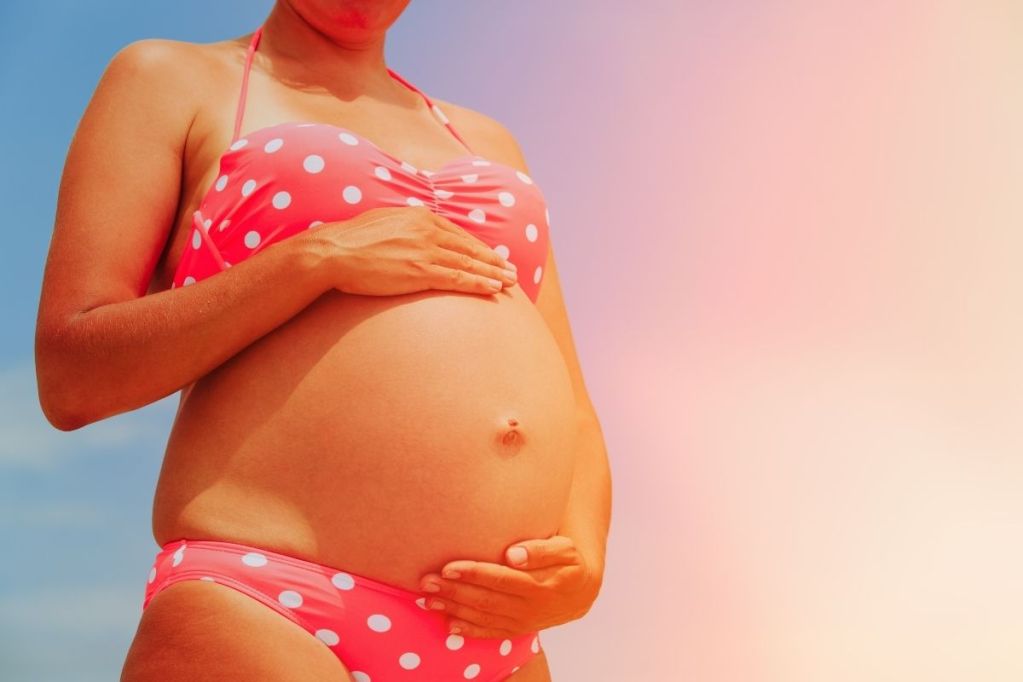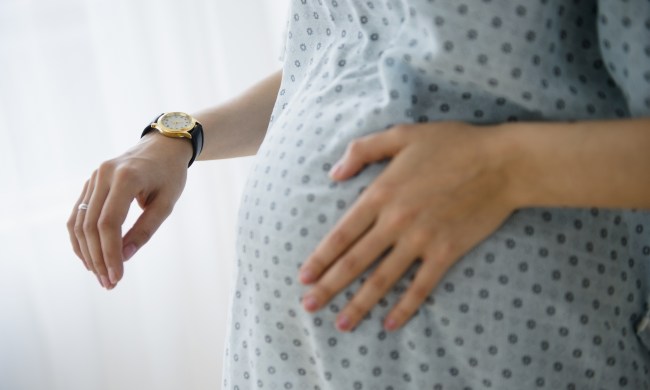Is tanning safe when you’re pregnant? The short answer is no. The long answer is, well, still no. Tanning while pregnant is not advisable, but, in truth, actively tanning at any time can and should be considered an unhealthy choice. You might like that sun-kissed goddess glow, but exposing your skin to UVA and UVB rays without adequate protection puts you at risk for painful burns, long-term sun damage (aka sun spots and wrinkles), and even skin cancer. Furthermore, some hormones present in a pregnant person’s system during pregnancy make them even more vulnerable to the sun’s harmful radiation.
Of course, soon-to-be parents can’t completely avoid the sun during the summer months, so, rest assured that you can still enjoy some natural Vitamin D by taking a few simple precautions. We spoke to OB-GYN Dr. Tara Scott, founder of the wellness-focused Revitalize medical practice and creator of the online Revitalize Academy, for her take on the risks of tanning while pregnant as well as her top sun-safety tips.
What are the risks of tanning while pregnant?

“When you are pregnant, you have elevated levels of the hormone estrogen — this can frequently result in a case of melasma, or ‘the mask of pregnancy,'” explained Dr. Scott. “This is a darkening of the skin on the face, usually around the mouth, but can also be patches on the cheek. These dark spots may fade after delivery, but the damage to your skin/effect on age spots in the future will already be done,” she added.
In other words, Dr. Scott notes that your skin is extra sensitive to the sun when you are expecting, and you are at an increased risk of getting a sunburn, so it’s more important than ever to take precautions and protect your skin.
Basking in the sun at the beach, or lounging poolside in a skimpy suit is certainly not recommended, and it is definitely not advised to hit up the tanning salon to bake in a UV bed. Fetal temperature is higher than a mother’s body temp, and Dr. Scott said that both parent and baby “could be in danger of overheating.” That scary fact aside, the truth is that everyone, regardless if they are pregnant or not, should skip the tanning bed as it increases your risk of skin damage and skin cancer.
How can you protect yourself from the sun during pregnancy?

First and foremost, get out the SPF. Dr. Scott recommended using a mineral-based product with the active ingredient of either titanium dioxide or zinc oxide rather than a chemical-based option.
“In addition, [you] should use at least 50 SPF. Most of us don’t use enough 30 to have it actually be a 30 SPF,” she said. So slather it on, reapply, and do not be stingy on the bump!
You should also try to stay out of the sun during its strongest hours, typically between 10 a.m. and 2 p.m. Try to cover up as much exposed skin as possible with breathable cotton materials (think a drapey maternity dress), and get yourself a wide-brimmed hat and sunglasses. You may worship the sun, but the shade is your friend. You’re definitely going to want to find a spot where you can get out of the sun at regular intervals.
Can you use self-tanner while you are pregnant?

Okay, so excessive sun is out, and the tanning bed is a hard no. What’s a mama to do?
If you still want a bronzed bump without the risks associated with sunbathing, you can opt for a self-tanning lotion. As explained by Dr. Scott, these products are “superficial on the skin,” so they are relatively safe, and you don’t have to worry that it will hurt you or your baby. Still, she cautions expecting mamas to do their due diligence and double-check the ingredient list. “I would caution against harmful ingredients like sulfates or phthalates that are endocrine-disrupters, she said, noting “the more natural, the better!”
The risks of sunbathing while pregnant are significant. You could hurt yourself, damage your skin, and potentially increase your risk of skin cancer. So, before you bare that bump to soak up the rays, think twice, protect your body, and remember, you already have the natural glow of pregnancy. If you want to enhance your gorgeous pregnancy glow add a safe natural tanning lotion to give you all the benefits of a sun-kissed look without any of the risks.


